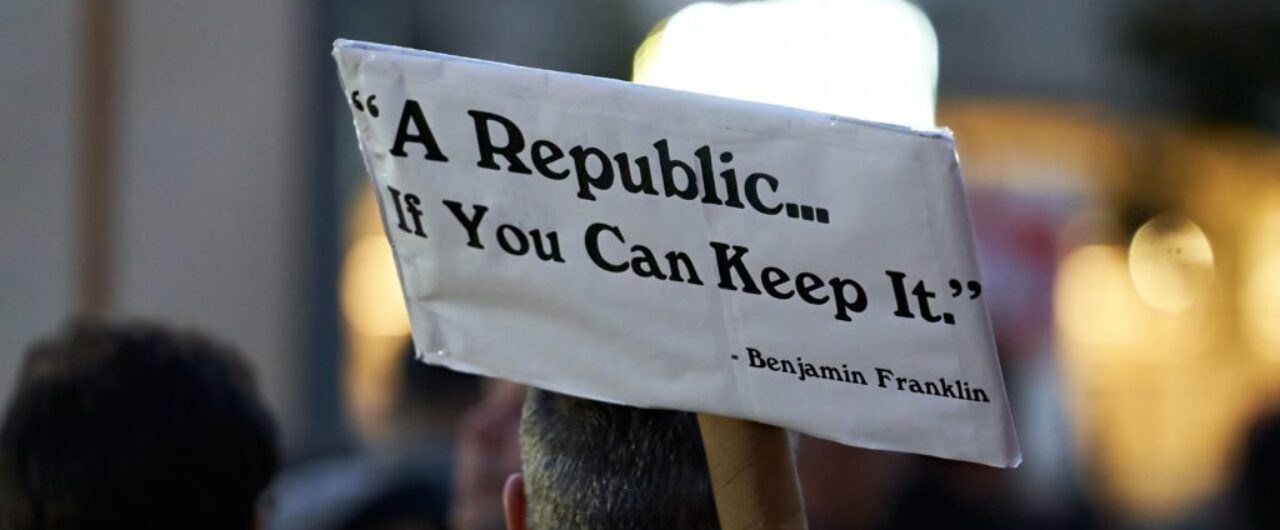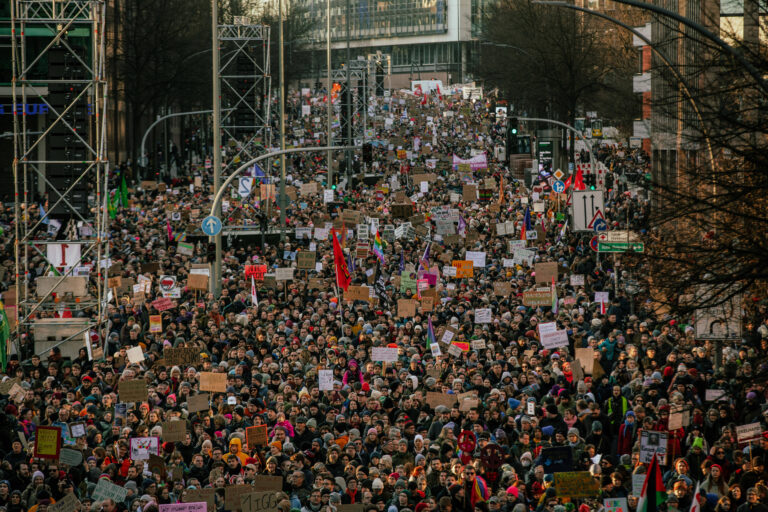Joe Biden is the 46th President of the United States. From the minute he is sworn in, his administration will begin working on reversing many of his predecessor’s legacies on climate change, immigration, and domestic policy. Underlying these efforts will be the challenge of unifying a country in an era of rampant disinformation. To guide the country through this fact-rejecting fog and towards social and economic justice, the new administration must deliver visible relief and recovery.
Confronting Covid-19 with Social and Economic Justice
One hundred million doses of the coronavirus vaccine in his first 100 days: this is Biden’s most quotable and urgent goal for his new administration. How it handles Covid-19 will likely ultimately define his legacy. The pandemic response must be sustainable, meaning it targets existing inequalities that the virus has exacerbated. Success would include returning to a post-pandemic society that drastically reduced economic inequalities by guaranteeing a federal 15 dollar minimum wage and implementing universal health care, two policy priorities backed up by the Democratic party platform.
Biden has already released his first stimulus package, the American Rescue Plan, and urgently wants to sign the bill. Crucial social protections such as paid sick leave are included in the plan and cannot be implemented soon enough. In December, all of the lost jobs in the United States were women’s jobs due to the virus affecting fields of work primarily occupied by women.
Passing paid sick leave stops the spread of the virus and also reduces inequalities between gender, class, and race.
Biden must keep true to his campaign slogan of „building back better“ by aiming to not just stop the coronavirus, but to do so with policies that continue to improve people’s lives once the pandemic is contained. Paid sick leave and similar policies get to the root of the problem by providing relief and laying the groundwork for reform.
Cities and Metropolitan Areas: Actors that Power Progress
Cities were also mainly responsible for Democratic victories in the Senate and even the White House. From Detroit to Philadelphia, to Atlanta, major cities and their large Black populations played a decisive role in the 2020 General Election. Urban mobilization, in large part done by Black and other POC organizers, should be acknowledged with Federal relief and policies that lay the groundwork for economic and democratic reform.
The communities that delivered Democratic victories are often the very same that would benefit from relief and reform the most.
Biden’s American Rescue Plan proposes giving 350 billion US dollars directly to state and local governments. These funds will provide relief to help balance municipal budgets that have been strongly affected by the economic downturn during the Covid-19 pandemic. These emergency funds can help keep school and other public services running. A second relief phase likely will focus on infrastructure and innovation.
Direct relief for municipalities is in direct contrast to the prior administration’s position. The previous President viewed emergency relief for cities negatively and as a bailout for ‚failing‘ Democrat-run cities and states. The Biden has the opportunity to successfully juxtapose themselves to the former administration by providing relief to cities across the country that desperately need support. During a pandemic, such help is essential. A secondary benefit is that such action will allow communities in cities small and large to experience support and progress firsthand.
Biden’s first days in office must deliver support to cities and metropolitan areas. It is a matter of saving lives, economic livelihoods, justice, acknowledging the very people who brought him into office and the work that cities have done in upholding democracy the past four years. Ultimately, building bonds between the municipal and federal level will establish much needed public trust in political institutions and help break through the fog of disinformation.
Transatlantic Relations for the Working and Middle Class
From reversing Trump’s policies on climate and immigration to rejoining the World Health Organization, many of the Biden administration’s first executive actions will take a 180 degree turn away from the previous administration. Importantly, these actions will also legitimize the municipalities that upheld necessary climate and immigration policies the past four years. These cities and metropolitan areas will once again have an ally in the White House.
The opportunity to have the municipal and federal level work together on issues like climate change must not be squandered.
Seizing this optimistic moment for foreign policy is good for all Americans and the world. Biden must fulfill his campaign promise of foreign policy for the middle class and continue to make clear how local economies and democratic systems are intertwined with the global community. It is time to connect the dots between domestic and foreign policy, and to conceive the challenges of the 21st century as borderless.
A strong tenet of the administration’s foreign policy will be to strengthen democracy stateside in order to lead by example in the international arena. One way this will be accomplished is by hosting a summit on climate and democracy in his first year of office. This will allow his administration to engage with both domestic and foreign civil society and government actors – further bridging the gap between local and global challenges.
The United States‘ role in the world has entered the American public’s consciousness, thanks to the previous President withdrawing from a multitude of multilateral organizations and cozying up to undemocratic world leaders. To ensure that future administrations cannot so easily walk away from the international scientific, political, and economic community, there must be a focus on connecting the benefits of international partnerships to everyday American citizens.
There needs to be more opportunities for the American public to be involved in decisions and processes on transatlantic and international levels.
Backing up Words with Actions
The incoming Biden administration will take immediate action to confront Covid-19, bolster cities and metropolitan areas, and strengthen international cooperation. The key will be to materialize Biden’s words of healing, accountability, and progress into actual justice and concrete improvements in people’s daily lives. During a pandemic and times of economic volatility, people need change that matters, not just rhetoric.
If none of the promises are implemented during the first year, the Democratic majority in 2022 will be at an even greater risk.
Assistance and change that people can see and feel is also how the United States can combat misinformation and the current racist, toxic rhetoric. Actions speak louder than words – and the majority of people voted for Joe Biden and Kamala Harris because they wanted action against the coronavirus, against racism, and for a democratic country. Now is the chance to juxtapose a functioning government to the previous corrupt and inefficient leadership. Trumpism will not be defeated in Biden’s first year, however delivering tangible relief, recovery, and reform is the best place to start.






